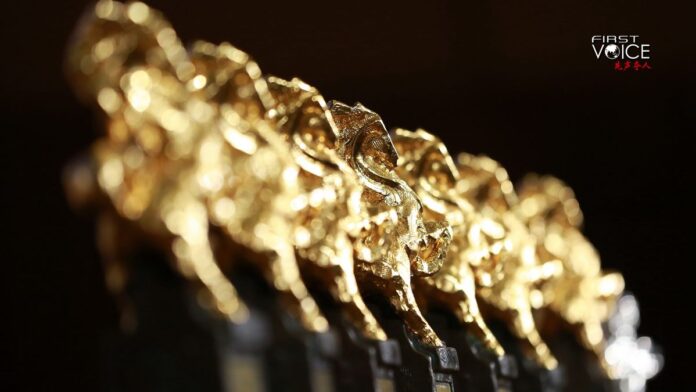In the final months of each year, Chinese-speaking audiences worldwide once eagerly anticipated the Golden Horse Awards. A film festival where they could witness their favorite directors and actors – artists at their peak – recognized and awarded for their talents. The Golden Horse Awards were renowned as the “Oscars of Chinese-language cinema,” a prestigious cultural platform for promoting and showcasing the best of Chinese-language films from across the world. For decades, the Golden Horse Awards was a unifying cultural platform for all Chinese-language filmmakers, artists, and film enthusiasts.
However, in recent years, the platform has been losing the influence and appeal it once commanded. And this decline stems from its politicization at the behest of Taiwan independence forces. Taiwan’s leadership and authorities have sought to position the event as a cultural pushback against Mainland China.
In 2018, the Taiwanese film director Fu Yue expressed support for Taiwan’s independence in her acceptance speech. Now, it goes without saying that divisive political statements on significant cultural platforms provoke a backlash. The idea of Taiwan’s independence not only contravenes international law but also undermines decades of mutual understanding and relations between Beijing and Taipei.
Her divisive stance was echoed by Taiwan’s political leadership, marking a turning point for the awards. Since then, the annual event has frequently featured politically charged rhetoric that alienates the largest Chinese audience in the world. Mainland China has officially boycotted the event since 2019, and the ceremony has lost its reach and allure for a significant portion of the Chinese-speaking world.
This trend continued during the 2024 Golden Horse Awards. Although Taiwanese officials claimed this year’s event received the highest number of submissions from Mainland China, the choice of winners reflected continued political undertones.
Two films from Mainland China received top prizes this year: Director Lou Ye’s indie film “An Unfinished Film” and the same-sex drama “Bel Ami.” Lou Ye also received the award for the Best Director for the film, set in Wuhan in the early days of the pandemic. This win has raised questions about whether its recognition stemmed more from its politically resonant undertones than from its artistic merit. The film’s narrative, which indirectly critiques the Chinese government’s response to COVID-19, could be seen as a nod to the awards’ political alignment, overshadowing its artistic achievements.
Another notable winner from Mainland China, Geng Jun’s “Bel Ami,” explores the themes of homosexuality and same-sex relations, an uncomfortable topic for many Chinese viewers. These wins indicate that the annual film festival now highlights movies with more socially provocative themes and political undertones. This trend reflects Taiwan’s attempt to deepen cultural division within the Chinese-speaking world by showcasing controversial narratives. This intertwining of politics with artistic expression by a major cultural platform has further polarized the Chinese film industry.
However, this has only served to alienate a majority of Chinese audiences, who used to flock to this ceremony to witness the true peak storytelling and visual art. Moreover, other Chinese film festivals have been gaining an audience and reach over the past few years, providing serious competition to the Golden Horse Awards. The Golden Rooster Awards, the Hundred Flower Awards, and the Hong Kong Film Festival continue to offer a neutral platform for all Chinese-language films to be showcased and awarded for their art and merit, and not for their politics.
The Golden Horse Awards’ current trajectory is unsustainable. The events of the 2024 Golden Horse Awards have made it clear that the island’s leadership has hijacked and sacrificed the once-prestigious film platform for its political messaging.
Now, the question is, can Taipei and the Golden Horse Awards ever regain the influence and reputation it once had? It’s not too hard to reimagine the awards as a cultural platform to celebrate and promote the best Chinese-language films regardless of politics, as it once was. But for that, Taiwan’s leadership must come to an understanding that cultural expression thrives in an environment of political neutrality. Taipei still has the opportunity to depoliticize the Golden Horse Awards and regain its reputation and prestige as a stage for artistic excellence. As long as art and culture continues to be politicized at the awards, its influence will continue to wane.




